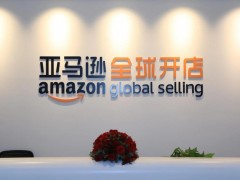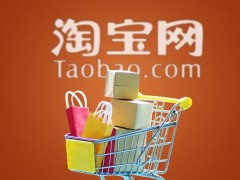Which platform is more suitable for cross-border e-commerce in Yiwu, AliExpress or Amazon?
|
1Person Answer
速卖通定位电子商务并不发达的国家,比如俄罗斯、东南亚等,既然速卖通定位的是这些国家,那么成功的必要条件就是性价比(甚至低价)、成本低的物流(邮政小包等)、还有普通的服务。
速卖通秉承淘宝战法以“价格为王”,平台准入门槛低,平台佣金也较ebay和亚马逊较低些,这就导致很多创业者涌入, 同质化竞争相对比较激烈些,很多卖家通过低价格才能有优势(其中不乏用技巧获取高额利润的卖家),另外速卖通会有惊喜: 来自阿里巴巴的小额批发订单,假使单一品类的产品供应链非常全,非常有竞争优势,做速卖通很快就可以成功,要是打价 格战,其他小卖家必死无疑。把产品不停地传上去,把价格调低,厉害的卖家直接找工厂拿出厂价或者用清库存的打法,对 于其他中间商来说就是致命的打击,根本让人无路可走。有没品牌无所谓,只要有价格优势就可以。Professional answer
AliExpress targets countries where e-commerce is not well developed, such as Russia and Southeast Asia. Since AliExpress targets these countries, the necessary conditions for success are cost-effectiveness (even low prices), low-cost logistics (postal parcels, etc.), and ordinary services.
AliExpress adheres to the Taobao strategy of "price is king". The platform entry threshold is low, and the platform commission is lower than that of eBay and Amazon. This has led to the influx of many entrepreneurs. The homogeneous competition is relatively fierce. Many sellers can only gain advantages through low prices (among them, there are many sellers who use skills to obtain high profits). In addition, AliExpress will have surprises: small wholesale orders from Alibaba. If the supply chain of a single category of products is very complete and very competitive, you can quickly succeed in AliExpress. If you fight a price war, other small sellers will definitely die. Keep uploading products and lowering prices. The powerful sellers will directly contact the factory to offer factory prices or use the method of clearing inventory, which is a fatal blow to other middlemen, leaving them with no way out. It doesn’t matter whether there is a brand or not, as long as there is a price advantage.Similar Q&A
recommend How to get the first order from a new AliExpress store?
E-c News Continuously pushing e-commerce knowledge to you
African netizens use China Africa cross-border e-commerce platform for online shopping
looking at China's modern business history, the word "profiteer" must be familiar to everyone. To put it bluntly, profiteer is a person who earns a pric...

how is the new seller of cross-border e-commerce doing?
I believe many treasure mothers have an idea to do their own business and want to increase their income. Go to work, but you can't take care of your chi...

how can cross-border e-commerce Amazon sell on Amazon platform without goods?
cross border e-commerce trade entities in different customs territories conduct trade on the Internet, and then complete the whole transaction through cross-...

Amazon store opening process and cost analysis!
With the rapid development of cross-border e-commerce, more and more sellers want to enter Amazon. However, many people are still new to Amazon's cross-...

Amazon plans to expand its pharmacy business on a large scale and will add same day delivery service
Amazon Pharmacy says its growth strategy relies on the development and launch of “modular” pharmacies of varying sizes. (Amazon)

It's convenient! Taobao adds WeChat Pay function
On September 4th, Taobao and Tmall announced that in order to enhance consumers' shopping experience, Taobao plans to add WeChat payment capabilities an...

China's Taobao working with startup on deliveries by reusable rocket
SHENZHEN, China (hb2b) - Chinese rocket maker Space Epoch is working with Alibaba's online shopping platform Taobao to make reusable rockets for express...


Latest Q&A More
-
Do I need a trademark to open a franchise store on Pinduoduo to sell books?
#Pinduoduo#
-
How to withdraw from a Pinduoduo store
#Pinduoduo#
-
How to withdraw from Pinduoduo merchants
#Pinduoduo#
-
How to pay fees when closing a Pinduoduo store
#Pinduoduo#
-
How to withdraw from Pinduoduo
#Pinduoduo#
-
Which store on Pinduoduo is authentic?
#Pinduoduo#
-
Which stores on Pinduoduo can buy genuine products?
#Pinduoduo#
-
How to check the store under Pinduoduo
#Pinduoduo#
-
How to receive Pinduoduo online game products
#Pinduoduo#
-
How to sell the electronic version on Pinduoduo
#Pinduoduo#
E-c News 2025-10-12 00:20:25

- African netizens use China Africa cross-border e-commerce platform for online shopping
- how is the new seller of cross-border e-commerce doing?
- how can cross-border e-commerce Amazon sell on Amazon platform without goods?
- Amazon store opening process and cost analysis!
- Amazon plans to expand its pharmacy business on a large scale and will add same day delivery service
